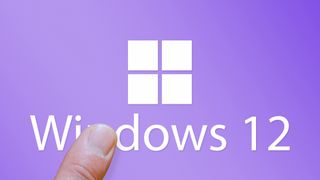Microsoft
Latest about Microsoft

This hidden Windows 11 setting might be quietly draining your RAM — here's a quick fix
By Darragh Murphy published
A Windows 11 feature has been spotted taking up a significant amount of system memory, leading to slow PCs. Here's how to easily fix the issue.

Microsoft accounts are under attack by hackers - here's how to stay safe from this age-old tactic
By Amber Bouman last updated
Microsoft accounts are being targeted using a common hacking technique which purposefully misspells websites and email addresses.

Rumor claims Xbox wants to bring older Xbox games to PC and handhelds — here's what we’ve heard
By Tony Polanco published
A new rumor claims that Xbox is making an effort to expand backward compatibility of older titles to platforms like PC and gaming handhelds.

Microsoft's December Patch fixes three zero-day flaws including one critical exploited vulnerability — update your PC right now
By Scott Younker last updated
Microsoft’s big December 2025 Patch Tuesday fixes 3 zero-day flaws and 57 other vulnerabilities.

Microsoft promises to improve PC gaming in 2026, but will it be enough to topple Steam?
By Tony Polanco published
Microsoft has improved gaming on Windows this year but it has even bigger plans for 2026.

Think you're a spreadsheet wizard? You ain't seen nothing 'til you've watched the Excel World Championships — here's how
By Alex Wawro published
You come for the king, you best not misclick

How to get Xbox Full Screen Experience on any Windows 11 PC — even if you don't have the option in settings
By Jason England last updated
Anyone can now turn their Windows 11 PC into a (sort of) games console with Xbox Full Screen Experience! Here's how to do it.

The Xbox Full Screen Experience just arrived on all Windows handhelds — here's how to enable it
By Scott Younker last updated
Microsoft quietly announced that all Windows-based handheld consoles will get the Xbox Full Screen Experience starting November 21.

Windows turns 40 — here's the 20 best (and worst) moments in Windows history
By Alex Wawro last updated
Windows marks its 40th birthday on Thursday (November 20), so to mark the occasion we thought it'd be fun to remember all the highs (and lows) of Windows through the years!
Here at Tom’s Guide our expert editors are committed to bringing you the best news, reviews and guides to help you stay informed and ahead of the curve!

